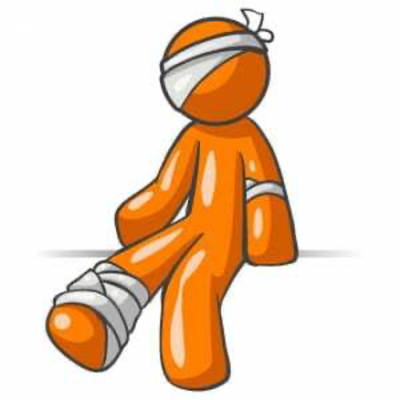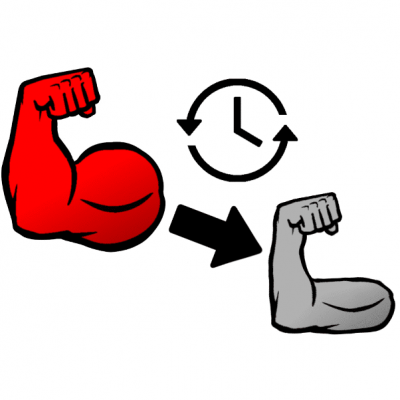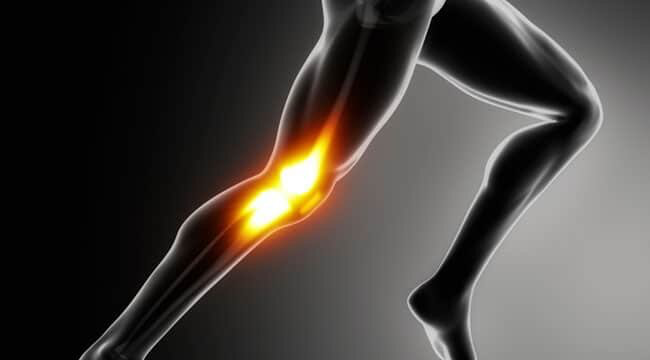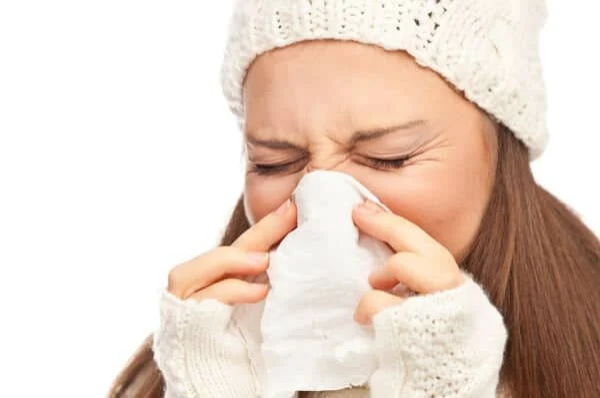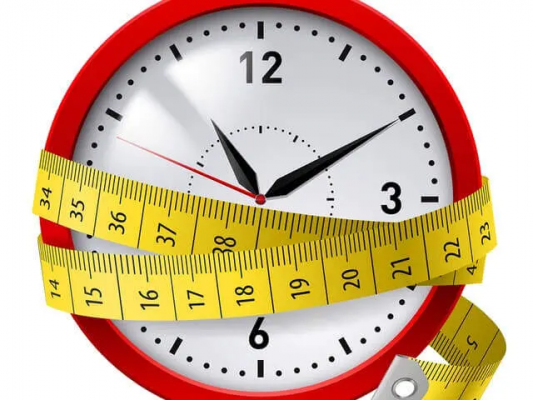10 signs you are not consuming enough protein
Proteins are one of the most important ingredients in our bodies.
When we consume them through our diet, we provide ourselves with essential amino acids – the basic building blocks of the body.
But when there is a deficiency of these so important nutrients, the body starts sending signals through various mechanisms that something is wrong.
Protein deficiency can be dangerous to your health, and if a large number of symptoms occur, it means there’s something wrong with your diet.
In most cases, to avoid the unhealthy and unpleasant symptoms of protein deficiency, it is enough to make changes in the way you eat.
Protein is most often associated with animal products, but there are other very good sources of protein in nature, namely plants or plant proteins.
You may have heard doctors and folk healers say that the key to strong health is being able to “listen” to your body.
Which means learning to listen, recognise, understand and act appropriately when our bodies give us signals that something is missing or wrong.
In the following lines you will discover the most common symptoms of protein deficiency, as well as how to recognise them and what you can do if you find you have one.
Sign #1 of Protein Deficiency: Slow Healing Wounds
Proteins and the important amino acids they supply to the body are the building blocks of the body.
When we have wounds, proteins are the ones that will help them heal quickly.
When there is a protein deficiency, the body loses the ability to repair and heal.
Protein is also the main building block for skin, nails, hair, etc.
Sign #2 of Protein Deficiency: Loss of Muscle Mass
With sports and increased physical activity, we put our bodies under serious additional strain that they are not used to.
This is a stressful situation for the body.
In order for it to recover and work at normal speed, increased nutrient intake is often necessary.
Some of the nutrients that need increased intake are proteins, carbohydrates, vitamins and minerals.
If some of these are not available, there is a good chance that the body will compensate with the stores it has already built up – whether it is protein (loss of muscle mass), carbohydrate (glycogen) or fat (fat deposits).
Sign #3 of protein deficiency: frequent injuries
In addition to the above processes, proteins also help in the absorption of calcium.
For this reason, protein deficiency can lead to weakening of the bones, which in turn is a serious prerequisite for frequent injuries, as well as for more difficult recovery from such injuries.
Sign #4 for protein deficiency: hair loss
Hair is composed of 90% protein.
For this reason, adequate protein intake is critical for hair strength.
When there is a deficiency of protein in the body, the hair follicles get thinner and thus hair loss accelerates.
This is one of the body’s most easily recognisable and certain signals that protein is lacking in the diet.
Sign #5 of protein deficiency: Difficulty concentrating
Another clear sign of protein deficiency is the inability to concentrate.
The easiest way to tell if you have this problem is if you feel that you are often reading or listening to something and having difficulty remembering or understanding it.
Sign #6 of protein deficiency: low immunity
The immune system has the ability to fight and prevent various diseases.
When strong immunity is lacking, it can be very easy to catch a cold or other more serious illness.
Lack of protein in the body is directly associated with lowered immune function according to a number of studies.
Sign #7 of Protein Deficiency: Weight Loss Problems
Lack of protein in the diet can be a serious prerequisite for muscle loss.
This can have a temporary effect on weight loss, but very often will have long term health consequences from a hormonal standpoint and/or damage to metabolism.
These consequences can make stagnant weight loss a permanent problem that is difficult to solve, especially if you don’t have the knowledge to cope.
Adequate protein intake is known for its benefits in reducing appetite, stimulating hormones associated with maintaining a healthy weight.
Sign #8 for Protein Deficiency: Sleep Disturbance/Insomnia
Insomnia is often associated with changes in blood sugar levels, which increases the production of cortisol (a stress hormone) and decreases the production of serotonin (known as the happiness and calm hormone) in the body.
Protein intake (through supplements or food) will help to increase serotonin production and reduce sugar cravings.
Adequate protein intake is a necessity to ensure good sleep, which in turn is a key element to everyone’s health.
Sign #9 of protein deficiency: Uncontrollable appetite or sweet cravings
If you constantly feel cravings for sweet foods and drinks, this is often associated with a protein deficiency in the body.
Protein can regulate blood sugar and thus reduce cravings and the desire for sweets.
Increased protein intake is a good way to cope with diet or nutrition regimen.
Sign #10 for protein deficiency: Metabolic (metabolism) slowdown
Protein is part of every life process that happens in our bodies.
In the process of digestion, the body breaks down protein to amino acids, which are the “real food” for it.
When the body suffers from protein deficiency, the production of digestive enzymes decreases.
This, in turn, can disrupt the proper function of the gastrointestinal tract, which in turn can lead to metabolic problems (slowed metabolism).
What is the optimal protein intake?
The optimal amount of protein depends on many individual factors. Some of these are physical activity, age, amount of muscle mass, fitness goals, health status, etc.
So, what amount of protein is most appropriate when aiming for weight loss, muscle gain or improved health?
There is no universal rule for determining individual protein needs on which there is complete consensus. Rather, “sufficiency norms” have been accepted for non-exercising people.
However, athletes are always looking to maximize recovery and development, so they also need more precise guidelines. What is the right approach?
You may have been paying attention to the recommended values on food labels for daily protein consumption – ~56 g daily for men and ~46 g daily for women.
The downside to these recommendations is that they are based on an average man or woman taking in 2000 calories per day.
Age, specific daily activities, calories consumed, energy expenditure, and a bunch of other factors are not considered.
This amount may be enough to prevent a serious deficiency, but it is far from optimal for weight loss, for gaining muscle mass, or for maintaining good health.
Optimal intake for non-athletes
For children: between 34 and 52 g of protein daily.
For adult men and women: Between 0.8 and 1 g of protein per kg or 25-30% of total calorie intake for the day.
Optimal intake for athletes
For amateurs and sports enthusiasts: between 1.5 and 2.2 grams of protein per kilogram of body weight per day.
For professionals and advanced exercisers: 2 and 3 grams of protein per kilogram of body weight.
To roughly calculate how much protein a sports enthusiast needs, we can use the following calculation: 80 (kilograms) x 2.2 (grams of protein) = 176 grams of protein per day.
Professional tip: Choose a higher protein intake limit to ensure you are covering needs and giving your body what it needs to recover and develop. Rarely can protein intake be overdone in good health.
In case you overdo it, the first symptoms are stomach discomfort and/or gas. If these are persistent it is important to pay attention by consulting a specialist.
In short: The recommended daily intakes for protein differ greatly for athletes and non-athletes. Sports enthusiasts and more advanced exercisers need a higher protein intake each day – between 1.5 and 3 grams of protein per kilogram.
At what time to take protein?
The optimal option is to spread your protein intake throughout the day, consuming protein with every meal.
Once you have determined your optimal protein intake, you can divide the result by the number of meals for the day.
Example:
We calculated the requirement of an amateur athlete who is 80 kg. In his diet there are 4 meals per day. We divide the daily protein requirement (176 grams) by the number of meals (4 meals).
The calculation looks like this: 176 (grams of protein for the day) / 4 (meals for the day) = ~44 grams of protein at each meal.
Pro tip: Be sure to add a protein source to your breakfast.
A common mistake is the complete lack of valuable protein early in the morning.
Taking protein in combination with other foods will help you start your day in the best way.
Examples of protein sources you can include at breakfast are eggs, Skyr (protein yoghurt), low-fat cottage cheese, protein powder, etc.
In short: The best option is to take protein with each meal in even portions. If you figure you need 100 grams of protein, and you eat 3 meals for the day, you need ~33 grams of protein at each meal.
How can we get more protein in our diet?
Increasing protein intake in the diet is simple but often time consuming to prepare.
This is the main reason most people don’t base their meals on protein, but on carbs and fats.
Another reason is the cost of quality protein sources that do not contain high amounts of saturated fat.
However, there are options that are easy to prepare, affordable in terms of price and do not contain a high number of calories.
Animal foods:
Meat and meat products – chicken, beef, pork;
- Eggs;
- Fish and seafood;
- Milk and dairy products;
- Plant sources:
Plant sources:
- Legumes;
- Nuts;
- Cereals;
- Seeds.
In practice, almost every natural food contains some percentage of protein. However, the greatest contribution to the provision of amino acids for the body is made by foods containing at least 7 percent or more protein in their composition.
Foods containing 3-7% play a secondary role.
Each food in the groups listed has its own nutritional value, which is determined by several factors other than protein content: amino acid profile, biological value, rate of absorption, etc.
The question arises, “Which food is the best choice among protein-rich foods?” The answer is – “There is no absolute champion!” The reason for this is that different proteins deliver different amounts and proportions of amino acids to the body within different time periods after consumption.
The best approach is a balanced diet – rotating different quality protein sources.
Animal sources of protein are thought to be superior to plant sources in a direct gram-for-gram comparison of amino acid profiles because of the increased presence of essential amino acids in animal protein.
This is even more important for athletes who have increased needs for these amino acids.
On the other hand, it is not possible to consume only animal proteins without adequate amounts of vegetables in the diet for a healthy digestive system.
Professional tip: If you’re on a low-carb diet, you can afford higher-calorie sources of protein (with a higher presence of fat). If you are not following a low-carb diet, be sure to try to focus as much as possible on fat-free sources of protein.
This rule will allow you to maintain a higher protein intake without taking in a lot of calories.
Taking a protein supplement can also be a good idea if you are having difficulty reaching your daily protein intake goals. Whey protein powder is an excellent choice.
Conclusion
Protein deficiency and the low intake that occurs in the menu of a large percentage of people is something that must be addressed to avoid a decline in health markers and unpleasant symptoms.
You now know how to deal with most of the problems that can arise from protein deficiency.
The most important advice you can take from this article is that in addition to “listening” to the body’s signals, it is important to take specific actions to bring about positive change.
Is there a symptom with protein deficiency that you have experienced and dealt with or one that you have yet to deal with?
Please comment and share the article with friends. Thank you!
